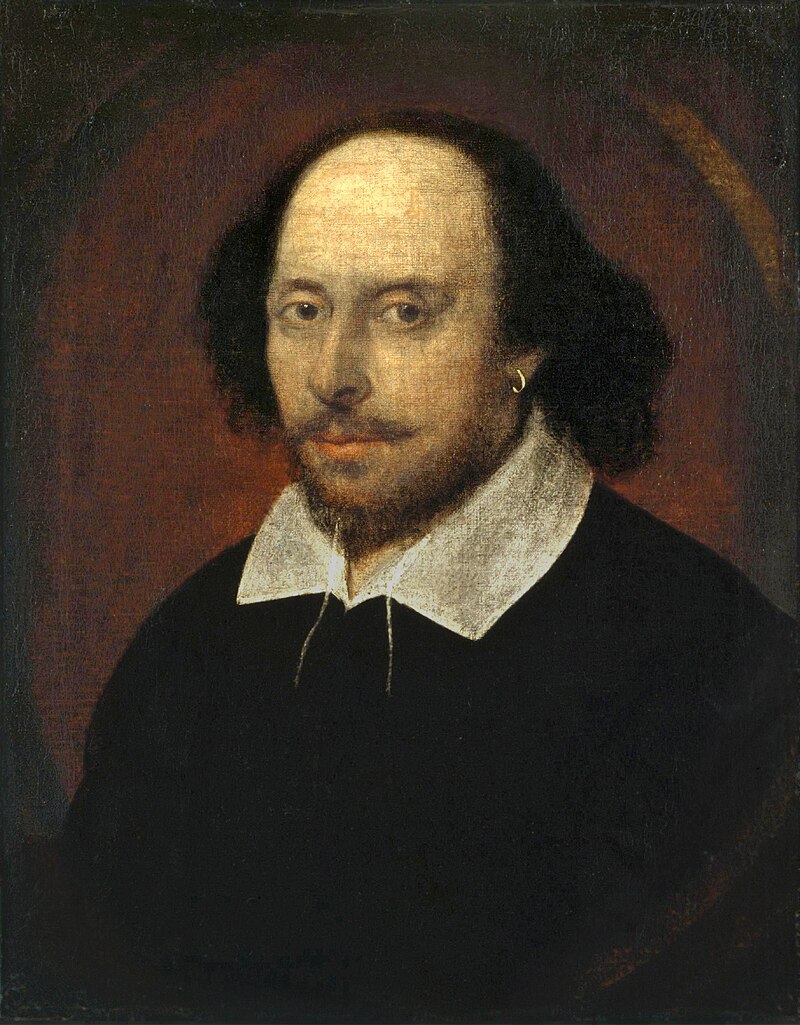![]() It's true, you can access most COM Library resources at home! COM Library’s catalog, and the thousands of eBooks and articles in our databases can all be accessed off campus. Just login with your COM account for off campus access.
It's true, you can access most COM Library resources at home! COM Library’s catalog, and the thousands of eBooks and articles in our databases can all be accessed off campus. Just login with your COM account for off campus access.
 Shakespeare was educated at Stratford-on-Avon Free Grammar School, married Anne Hathaway in 1582, was probably a schoolmaster in a neighbouring village in 1585 and came to London in 1586. He apparently got a job in either the Globe or the Curtain Theatre, made the acquaintance of the E. of Southampton and later became an acting member of the Lord Chamberlain's Men, a company of players renamed the King's Men at the accession of James I.
Shakespeare was educated at Stratford-on-Avon Free Grammar School, married Anne Hathaway in 1582, was probably a schoolmaster in a neighbouring village in 1585 and came to London in 1586. He apparently got a job in either the Globe or the Curtain Theatre, made the acquaintance of the E. of Southampton and later became an acting member of the Lord Chamberlain's Men, a company of players renamed the King's Men at the accession of James I.
His earliest play is Henry VI (1591) followed by Richard III (1592). These may, with their propagandist flavour, have earned him favour at Court. His other works included the Taming of the Shrew (1593), Venus and Adonis (1593) and Lucrece (1594); the two latter were dedicated to Southampton. Most of the Sonnets appeared between 1593 and 1596 and are, by some, connected with that nobleman but others hold that the dark lady of them was Luce or Lucy Morgan or Negro (fi. 1593) a handsome African black who kept a brothel in Clerkenwell. There followed Two Gentlemen of Verona, Love's Labours Lost and Romeo and Juliet (1594-5), Richard II and Midsummer Night's Dream (1595-6).
By this time he was no longer poor and bought a large town house at Stratford in 1597. King John and The Merchant of Venice also appeared at about this time and Henry IV a year later. Then followed Much Ado About Nothing, As You Like It, Twelfth Night, Henry V and Julius Caesar (1598- 1600). Hamlet dates from 1600 or 1601 and so does The Merry Wives of Windsor which was traditionally written at the Queen's command. His Jacobean plays were Measure for Measure and Othello (160?-5), King Lear and Macbeth (1605-6), Anthony and Cleopatra (1606-7), Coriolanus and Timon of Athens (1607-8), Pericles, Cymbeline and The Winter's Tale (1608-11) and The Tempest (1612). He then retired, bought a house at Blackfriars and spent the rest of his life between Stratford and London.
From CREDO William Shakespeare: The Companion to British History.
![]()
© 2023 COM Library
1200 Amburn Road, Texas City, Texas 77591
409-933-8448 . FAX 409-933-8030
This work is licensed under a Creative Commons Attribution-NonCommercial 4.0 International License
Class Poll